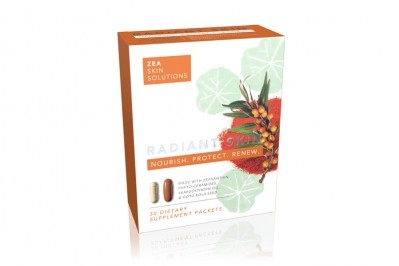Carotenoids researchers rail against wording of Kemin press release

The press release, put out on July 12, 2017 by Kemin Industries, was titled “New Study Finds No Additional Benefit from (RS) Meso-Zeaxanthin.” The release highlighted new research by John Nolan, PhD, Stephen Beatty, PhD, and others that was the subject of a talk at the recent meeting of the International Carotenoid Society in Lucerne, Switzerland. According to Kemin’s take on the study, it, “showed that the addition of (RS) meso-zeaxanthin, a non-dietary carotenoid found in many eye health supplements, contributes no additional efficacy for eye health in people with non-advanced age-related macular degeneration (early AMD).“ The company told NutraIngredients-USA that it stands by its release and that the content accurately represented the conference abstract.
The findings were part of the large scale Central Retinal Enrichment Supplementation Trials (CREST), a trial conducted by Nolan’s team at the Waterford Institute of Technology that has been was funded by a grant from the European Research Council. The goal, according to the researchers, is to “to use a gold standard clinical trial design to study the ‘protective’’ and ‘’visual function’ hypotheses of MP (macular pigment).”
Importance of MP
Macular pigment is an agglomeration of yellow pigment concentrated at the macula, the region of greatest visual acuity in the retina. The pigment is composed of three carotenoids, lutein, zeaxanthin and meso-zeaxanthin. Nolan has been an advocate of using all three carotenoids in visual performance support supplements.
Nolan’s team has investigated the idea that there is a good case to be made that these three carotenoids perform an everyday function in supporting visual acuity and were not hoarded by the body merely to forestall the erosion of time.
“From an evolutionary perspective, it is unlikely that humans have evolved to selectively accumulate three carotenoids (L, Z, and MZ) in the central retina to retard the natural course of an age-related disease. In other words, it seems intuitive that the primary role of MP is other than protection against age-related macular disorders,” they wrote in a study published last year that showed the three carotenoids improved visual performance in subjects that had normal vision to start.
Does ‘not inferior’ mean ‘no benefit?’
According to Kemin, the most recent, yet-to-be-published research that Nolan presented in Lucerne showed something different for patients who are already exhibiting symptoms of eye disease: “The CREST study examined the effect of adding (RS) meso-zeaxanthin to the standard National Eye Institute's Age-Related Eye Disease Study 2 (AREDS2) formula of 10 mg lutein and 2 mg zeaxanthin, plus low zinc. The study participants were randomly assigned to one of two AREDS2 (with low zinc) treatment groups: with 10 mg (RS) meso-zeaxanthin or no (RS) meso-zeaxanthin. After 24 months of follow-up in 98 participants with early AMD, there were no significant differences in measures of macular pigment or visual function between the treatments," states the release.
It is important to note that Kemin supplies FloraGlo, a carotenoid ingredient that contains lutein and zeaxanthin but no meso-zeaxanthin. Nolan’s research has used a MacuHealth formula that contains all three carotenoids.
Strident reaction from researchers
The tone of Kemin’s press release has irked Nolan and other researchers who were present at the meeting. Their view is that Kemin ‘cherry picked’ the data so to speak to put its ingredient in the best light. In an open letter addressed to Kemin, Nolan and Beatty had this to say:
“We, the authors and investigators of the research cited by Kemin Industries, wish to point out that Kemin Industries have (perhaps unwittingly) misrepresented our findings in support of an erroneous and misleading conclusion that suits their commercial interests.
“The study in question demonstrates that (in terms of visual benefits, and in terms of observed increase in macular pigment, in patients with non-advanced age-related macular degeneration) the formulation containing meso-zeaxanthin (MZ) is in fact non-inferior to the AREDS2 formulation.
“Non-inferior ≠ unnecessary and it is difficult to see how Kemin Industries made this error,” the pair wrote.
Dangerous precedent?
Another bone of contention is the fact that Kemin’s press release built upon research that is awaiting final peer review. There is a natural push from the organizers at scientific conferences such as the one in Lucerne for researchers to share their latest findings. Talks that are mere recaps of already-published research can be a bit dull, so presenters are put in the delicate position of sharing findings that might still need some tweaking in interpretation or other details before they are ready for prime time.
Jim Stringham, PhD, a carotenoids researcher at the University of Georgia, was present at the meeting and is also troubled by this aspect of the affair. Stringham was among researchers who have called for at least a retraction of the press release. In a letter to the leadership of the ICS, Stringham had this to say:
“To me this press release issue is not at all about the competitive nature of the companies that utilize the results of our studies. It is about something much more serious—scientific freedom and integrity. A research conference is meant to facilitate fruitful discussion among experts about (often) new, unpublished data. This press release gave me a sinking feeling in this regard—what if we need to, in the future, closely guard our findings for fear of the kind of snooping and manipulation that occurred at ICS? Well, to me that would be unacceptable and certainly not in the spirit of a scientific conference. I truly believe that this incident has the potential to set a dangerous precedent.”
Visual performance vs eye health
Nolan also took issue with Kemin’s use of his findings to make a broad statement about ‘eye health’ when he maintains his study was more tightly focused on specific parameters of visual performance. Nolan shared with NutraIngredients-USA a letter from John Landrum, PhD, of Florida International University, who is also president of the ICS.
“In my reading of your abstract, I can find no reference to 'eye health’ or a statement that the supplementation study and results of the abstract assessed 'eye health’. Rather, I see that you have confined your statements to the concern of ‘visual function’ which cannot be equated to ‘eye health’ in a simple fashion. Although Kemin’s interpretation of your abstract makes an error which would not be surprising of a lay reader, Kemin and its scientists are experts on the nature of the macular carotenoids, visual function, and eye health. I must agree that they have chosen words in their press release that are specifically intended to convey a meaning different from that in your abstract,” Landrum wrote.
Kemin: Press release reflects abstract
In response, Stacy Dill, world wide marketing director for human nutrition and health at Kemin said in her company’s opinion, the press release accurately represented the information shared in the abstract.
“Kemin has published the most studies on eye health and our goal is to continue to ensure new science is available for our customers to assess. We openly shared our eye health research which has been used over the past 20 years by multiple brands,” Dill said.
“By sharing information from abstracts this gives customers the opportunity to be knowledgeable on the latest science without the delay in waiting for publications. Our press release is based off the information provided from the CREST abstract which Prof. Nolan publically released at the ISC Symposium,” she said.

















